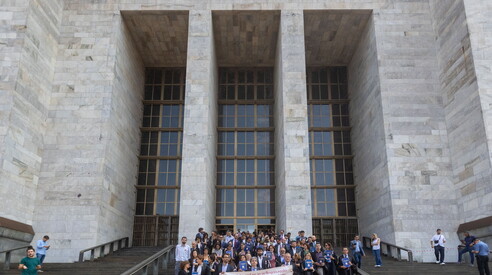Italian justice is a systemic crisis that can no longer be ignored.


Milan: ANM magistrates protest the Nordio reform (LaPresse)
Beyond individual cases of conflict with politics, beyond the overflowing prosecutors, it is the institutional framework that, by its very nature, exposes magistrates to the temptation or suspicion of acting outside their role. The unreasonable defense of the status quo.
With all due respect, frankly, that's enough, thank you. With all due respect, honestly, even less nonsense, thank you. With all due respect, sincerely, when we talk about justice in Italy, perhaps it would be time to remove the affectations from our eyes and start looking at reality for what it is, not for what we'd like to see. And reality, unfortunately, tells us something we've stubbornly refused to see for years. Something that has nothing to do with individual judicial investigations. Something that has nothing to do with the individual case at issue. Something much more important than the story of Almasri , the story of safe countries, the history of urban planning , the story of Ilva . The problem, when we talk about justice in Italy, is that too many pretend to live in a country that simply doesn't exist.
The point isn't just to discuss the overflowing prosecutors' offices. The point is to understand that, given the current structure of the Italian justice system, it's impossible not to think that behind an investigation there might be something other than a genuine desire to establish a fact . The fault doesn't lie with the magistrates, not even the most casual ones. The fault lies in failing to understand that the tragedy of the Italian justice system lies in denying the existence of a sick, toxic, corrosive system, constructed in such a way as to make overflows systematic, to make the criminalization of politics seem like a necessary act, to make the politicization of the judiciary a feature of judicial normality. When discussing the conflict between the judiciary and politics, it's not enough to simply consider the balance of power that exists in a given historical period.
We must have the courage to take a step forward and understand that what we have now accepted as normality coincides with a system that is not normal . It is not normal to have a judiciary endowed with immense power and vague offenses that allow it to act with discretion, building trials based on suspicions rather than evidence. It is not normal to have a judiciary where careers are often, not always fortunately, based on factional affiliation, and therefore based not on the results achieved but on the notoriety a magistrate acquires. It is not normal to have a judiciary that considers the use of media trials as a standard tool for strengthening prosecution arguments. It is not normal to have a magistrate who, when he makes a mistake, is moved from one office to another rather than punished. It is not normal to have a judiciary that considers it its duty to address not only individual responsibilities but also social phenomena. It's not normal to have a judicial system represented by trade unions that don't consider it an anomaly to campaign against a minister or a government, and it's not normal in a country like Italy, where, thanks to a judicial system capable of turning suspicions into sentences, some magistrates might even consider using the judicial cudgel to assert their own political ideas.
When we talk about justice in Italy, when we talk about the relationship between the judiciary and the legislative and executive branches, we often speak in the abstract, as if Italy were a normal country where justice is always free from any political temptation, where investigations are never conducted with improper tools, where the tools of justice are never used to enter a perimeter that should have nothing to do with the judicial perimeter.
When it comes to justice in Italy, however, we should have the courage to say that this is not the case, that the balance between the judiciary and the legislative branch has not been disrupted by politics, but by magistrates, some of whom now deeply regret their past actions. Therefore, before turning an investigation into a conviction, a suspicion into evidence, a wiretap into a sentence, we should consider whether, as is being said these days, the delegitimization of the judiciary, the most disorganized and unscrupulous of the judiciary, is truly the work of politics, ugly and evil, or whether the delegitimization of the judiciary is the work of those who, refusing to abide by a system that doesn't work as it should, consider defending the status quo the only way to avoid change in a time when much change is needed.
This isn't a criticism of magistrates as such, but of an institutional framework that, by its very nature, exposes even the most scrupulous to the temptation or suspicion of acting outside their role. The problem, when discussing the Almasri case, the Safe Countries case, or the urban planning case, isn't so much focusing on the individual investigation, on how the judiciary may have found a way to criminalize politics. The point, in these cases, is to attempt a logical leap, a leap forward, and admit that if there are suspicions that the judiciary may act not only to expose possible crimes but also to achieve other ends, the blame lies not with the politicians who denounce them, but with those who fail to grasp a truth that deserves to be clarified: the delegitimization of the judiciary isn't the fault of politics, but rather of a judiciary that has transformed the defense of its own irresponsibility into the only way to defend our Constitution. With all due respect, frankly, that's enough, thank you.
More on these topics:
ilmanifesto





